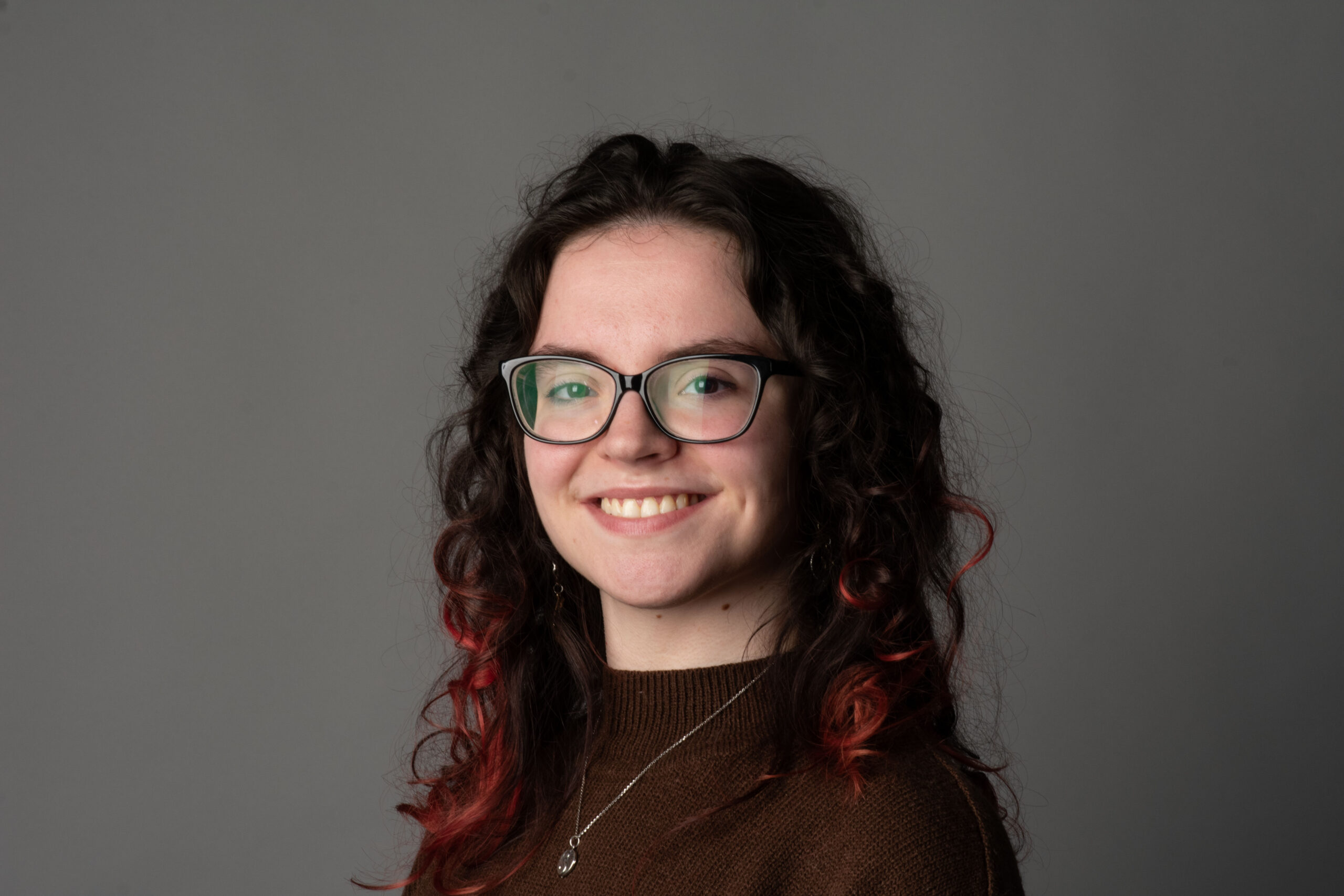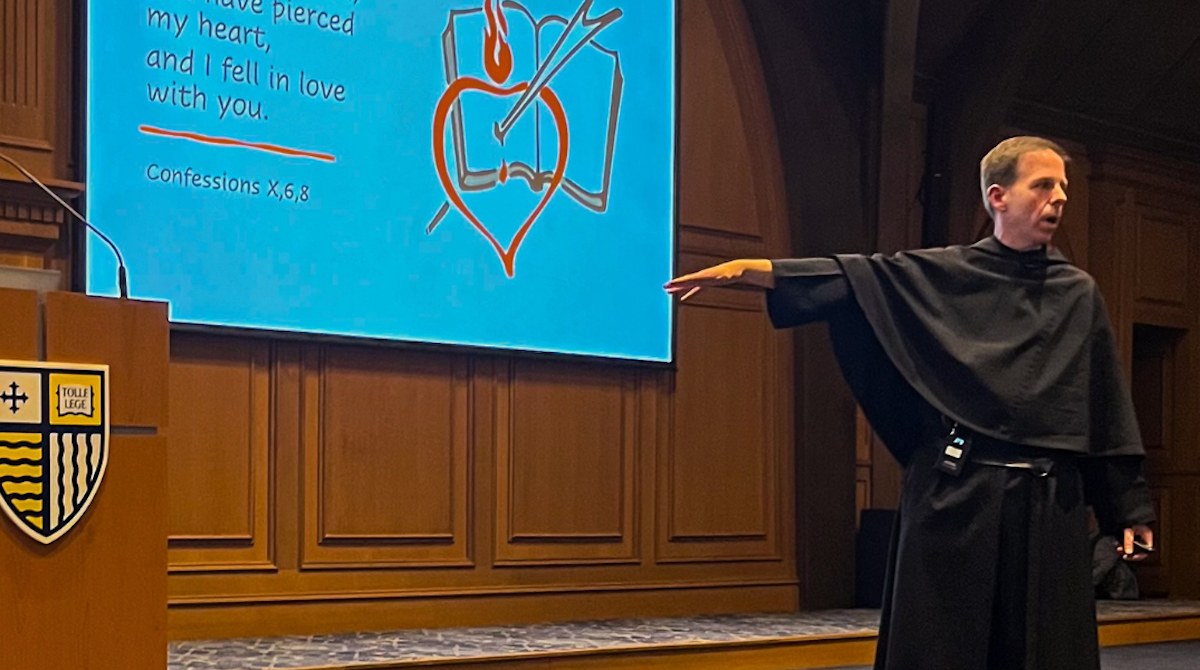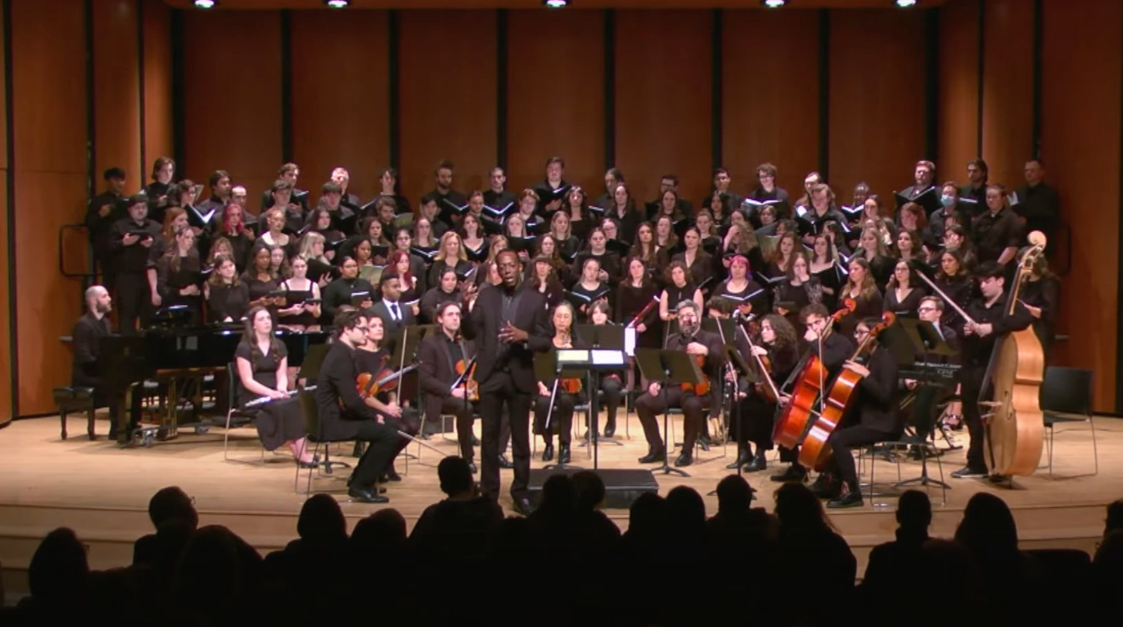Throughout his studies in pursuit of a doctoral degree in philosophy, Christian Kronsted found that a lot of classic thinking and research in the field is sedentary.
“This doesn’t really illustrate life,” explained Kronsted, an assistant professor of practice in Merrimack College’s Honors Program. “You can see in all kinds of philosophical theories, they were written by people who don’t move much.”
So he saw an opportunity to combine his academic passion with one of his first true loves: dance. “Dance has followed me throughout my life both as an individual and as an intellectual.”
Breakdancing specifically is what Kronsted dedicated his life to through his late teens and early 20s, including competing in the U.S. and Europe. He was first exposed to break dancing at a fashion show. A young woman invited Kronsted to watch her in the show, where the pre-event entertainment was a break dancer.
“It was love at first sight, the first time seeing someone spin on their head,” said Kronsted, adding that while the young woman invited Kronsted backstage after the show, he spent that time talking with the dancer.
It is the foundation of cross steps, head spins and shuffles that Kronsted has built his scholarship on. By observing how groups work together to plan, practice and perform a dance, how they partner up and move together, Kronsted explained you can gain a deeper understanding of the mechanisms that facilitate human behavior.
“We are working to take processes that seem abstract and explain why they are pragmatic,” he said.
Kronsted, who has a doctorate in philosophy from the University of Memphis, said what drew him to Merrimack was the opportunity to teach in a space where he could integrate research in a way that would be meaningful to students.
In just over a year, Kronsted has published a research article with a student on fan fiction on the internet and hosted an embodied cognition and dance research conference at Merrimack that explored the role dance as a tool for social justice, a form of therapy for Parkinson’s disease, the role of AI in dance instruction and more.
“We want to make Merrimack College an epicenter for embodied cognition research in the Northeast,” Kronsted said.





